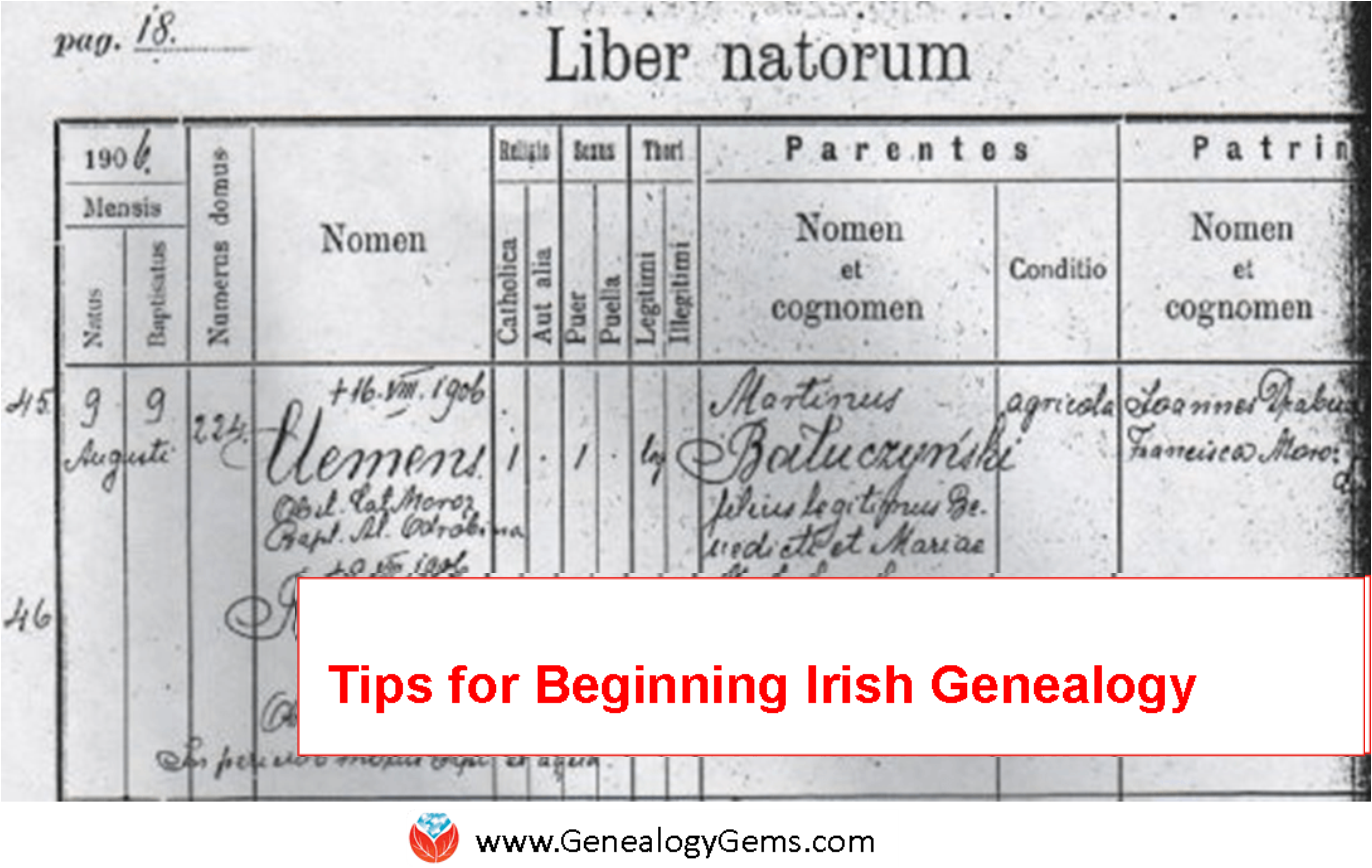Here are 3 essential tips for beginning Irish genealogy from Brian Donovan, Head of Irish Data and Development at Findmypast. Plus we’ll highlight Findmypast’s enormous collection of Irish records.
It’s March now, and time to start celebrating all things Irish! Findmypast.com is one of the best resources for Irish genealogy research, thanks to their enormous index of Irish Parish Records (1670-1900). The index has 40 million names from 1,000 parishes across all 32 counties of Ireland and links to digitized content at the National Library of Ireland.

According to Findmypast, parish records are “the most important resource for Irish ancestors prior to the 1901 census, allowing researchers to trace their roots back to Pre-Famine Ireland.” Let’s hear from Findmypast’s Irish research expert to help you get started in finding your Irish ancestors.
Beginning Irish Genealogy: Tips to Get Started
It can be intimidating to start researching Irish genealogy. I asked Brian Donovan, Head of Irish Data and Development at Findmypast, to answer 3 key questions: 
Q: How do I know if I’m ready to “cross the pond” back to Ireland? What information should I have?
A: Before looking through Irish records…you’ll want to know as much as you can about the origins of your immigrant Irish ancestor. Obviously you’ll need to know their name and date of birth, but the really key piece of information is their place of birth – that’s absolutely essential, especially if you have a common last name. At minimum, you would need to know the county, but knowing the parish or townland is even more helpful. With our new parish records, however, it’s much more possible to make progress knowing only the county. Additionally, knowing the names of other family members, such as their parents or siblings, buy hypothyroid medication will also help locate your Irish family before they left.
Q: What are the first Irish records I should search? Does that change by time period?
A: It definitely depends on the time period. If you know your ancestors migrated after 1901, that’s easy – start with the 1901 Census of Ireland. If they left Ireland prior to that, focus on the civil registers of birthsand of course the parish records. Civil registration began in 1864, so if they [left] before that, your best option is to look in the parish records and land records (like Griffith’s Valuation). This is why we’re so thrilled to be releasing these parish records: a huge portion of Irish emigrated before 1864, so prior to this release the only major record sets to work with were land records (though there are others that can be helpful too).
Q: What language or languages should I expect to encounter in Irish records?
A: Mostly English, but some parish registers are in Latin, the official language of the Catholic Church during the time period the records span. Irish was widely spoken and many people could only speak Irish, but the language was never used in official records.
More Irish genealogy resources:
Are you just beginning Irish genealogy? Find more great tips for getting started here. Book Club Gem: Suggested Read for Irish-Americans 




